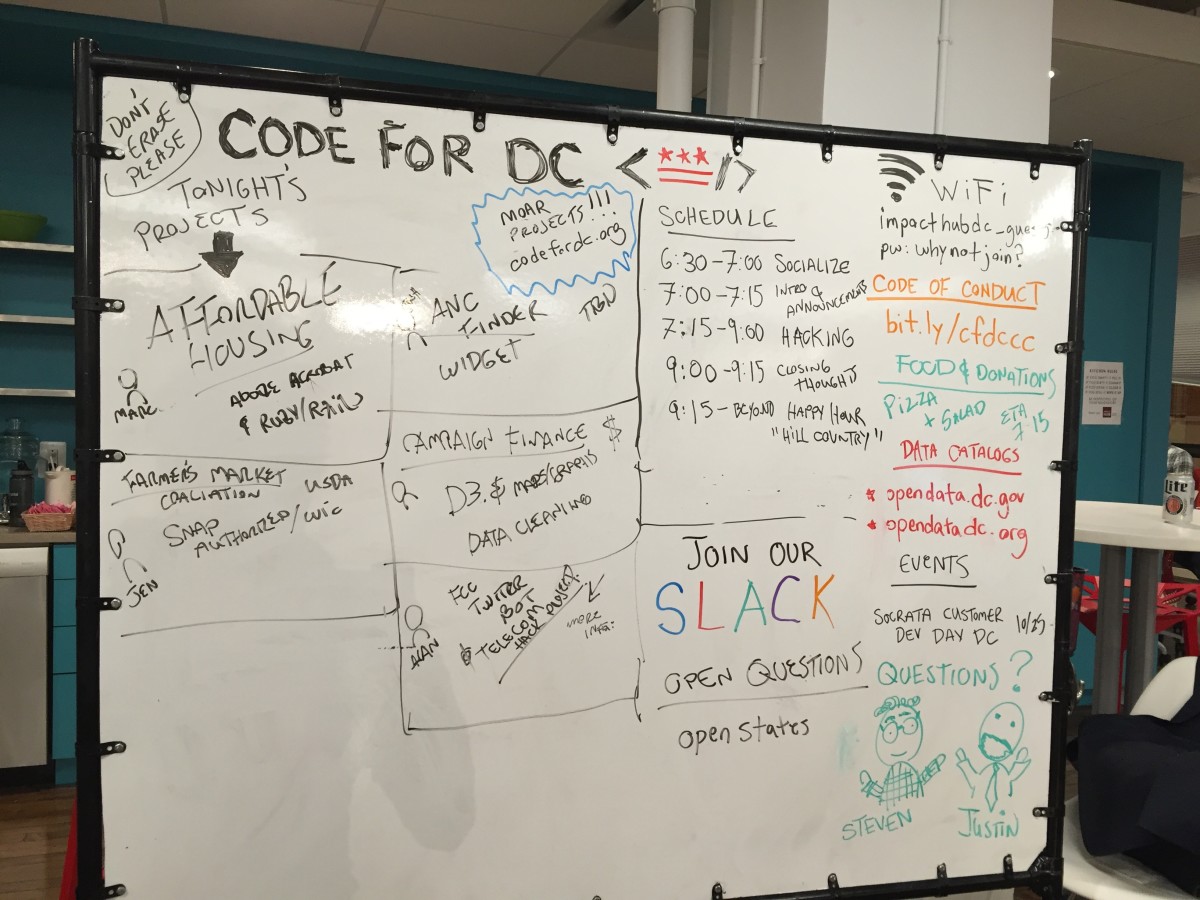If you’re a D.C. resident whose primary association with Python is the enormous snake, and who thinks Ruby on Rails would make a great name for a new drink at that hipster bar, you might think Code for DC is not for you. But Justin Grimes and Steven Reilly, the current co-captains of the group, would like to convince you that you’re wrong.
Of course the group is all about utilizing the abilities of the coding experts among you as well. But their projects, which range from figuring out how to visualize D.C. campaign finance data to streamlining the process of having records expunged or sealed, need more than tech expertise.
Reilly, who recently replaced departing captain Leah Bannon, says the group is always trying to figure out how to create a welcoming space for people who might not initially be attracted to a coding meetup.
Some people think they don’t have any of the necessary skills — that’s never true.
It’s the collaboration of people with disparate skills, channeling those towards completing projects, that makes Code for DC work. Lawyers, journalists or even curious members of the D.C. community could lend important knowledge and perspective.
A team of Code for DC’s hackers might be able to build a really great tool, but in order for that tool to fulfill the group’s civic mission it also needs to fill a community need. And for that “we need the input of subject-matter experts,” Reilly says.
This ethos of inclusion is reflected in the structure of each meetup — from the background explanation of every project that will be worked on that night, to the orientation and onboarding session that Grimes leads at every meeting.
See you tonight for some A+ civic hacking! 6:30pm! http://t.co/m26EXNb1Ad pic.twitter.com/jzQJkaNibs
— Civic Tech DC (@CivicTechDC) September 22, 2015
Grimes takes finding a project for every participant (coder or not) to work on very seriously. He also places a premium on creating a fun, friendly environment. “If someone comes to a meetup and doesn’t have a good time, that’s not on them, it’s on me,” Grimes said.
“Some people think they don’t have any of the necessary skills — that’s never true,” Grimes says reassuringly. So if you’re passionate about accessible data or streamlining bureaucratic processes or just want to get more involved in the D.C. community, check out this project list to see what catches your eye. Don’t be daunted by the name, Code for DC needs all hands on deck.
Before you go...
Please consider supporting Technical.ly to keep our independent journalism strong. Unlike most business-focused media outlets, we don’t have a paywall. Instead, we count on your personal and organizational support.
Join our growing Slack community
Join 5,000 tech professionals and entrepreneurs in our community Slack today!

The person charged in the UnitedHealthcare CEO shooting had a ton of tech connections

The looming TikTok ban doesn’t strike financial fear into the hearts of creators — it’s community they’re worried about

Where are the country’s most vibrant tech and startup communities?

